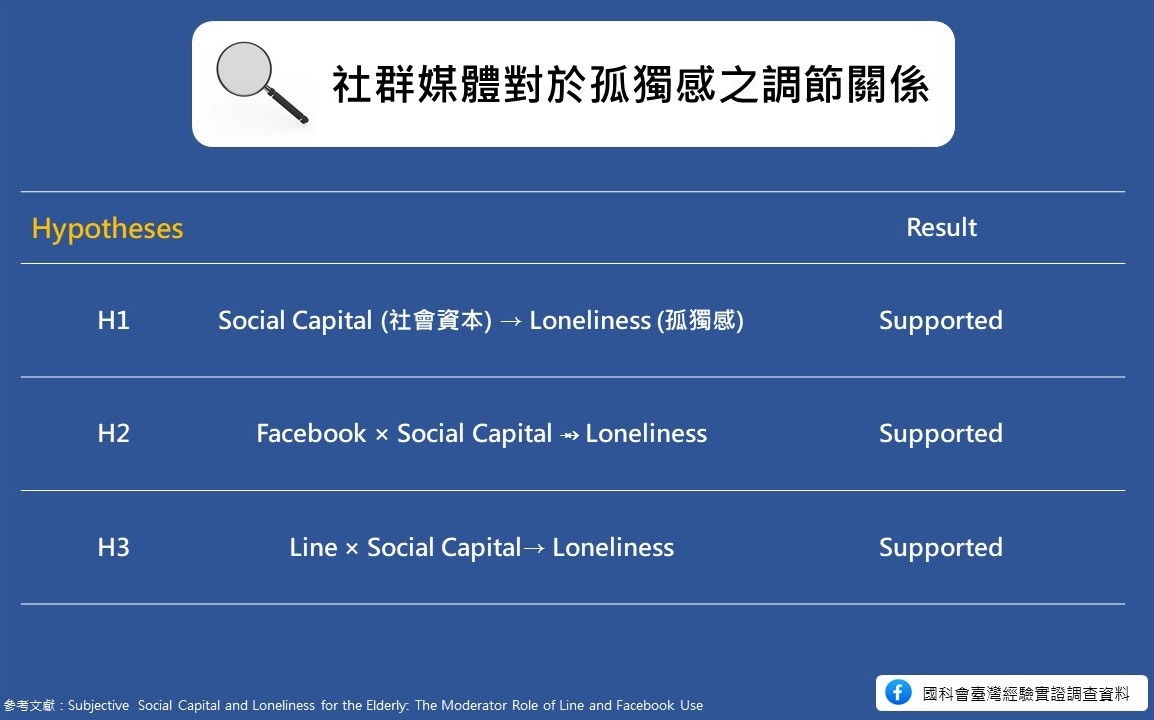Analyzing the effects of LINE and Facebook use on loneliness among older adults
📱 Although social media has only been around for about 20 years, it has already quietly integrated into our daily lives. A short message, a photo, or a simple “How are you?” can create a connection and remind us that someone cares. For young people, these actions feel natural; but for many older adults, stepping into this world is not easy. Especially after retirement, with fewer interactions at work and less frequent meet-ups with friends, loneliness can gradually accumulate.
In such a life stage, if social media is used effectively, a LINE greeting or a Facebook status update can become a bridge to stay connected with the world. This sense of “having someone there, having someone to talk to” is a form of psychological connection, also known as social capital. But have you ever wondered—does every type of social media provide this same sense of companionship? Or are some platforms actually less helpful?
Professor Yue Xiuping (Distinguished Professor at NTU) and his research team used data from the 2018 Taiwan Communication Survey (TCS) to analyze the effects of LINE and Facebook use on loneliness among older adults.

🔍 The findings revealed:
1. The higher the social capital, the lower the sense of loneliness.
2. Facebook use did not show a significant moderating effect on loneliness.
3. LINE use, however, effectively helped reduce loneliness.
Why can LINE ease loneliness while Facebook’s effect is limited?
The key lies in the nature of interactions behind the two platforms.
LINE is typically used for chatting with close contacts—family, old friends, or neighbors—often through one-on-one or small group private conversations. These interactions are more direct and emotionally authentic. Facebook, on the other hand, focuses more on public sharing. Although you can see updates from many people, interactions are often shallow, usually ending with just a “like” or a quick glance, making it harder to build genuine emotional bonds.
For older adults, what truly matters is not the amount of information, but the feeling that someone cares, someone responds—even a simple “Good morning” can be enough to warm an entire day.
Original links:Subjective social capital and loneliness for the elderly: the moderator role of line and Facebook use

